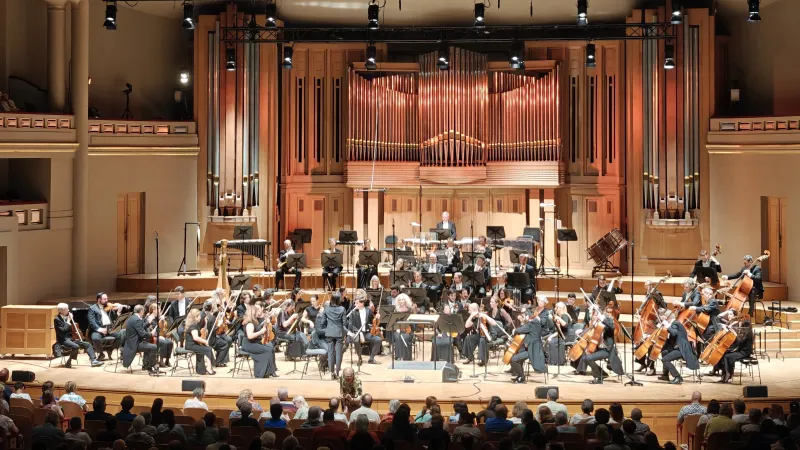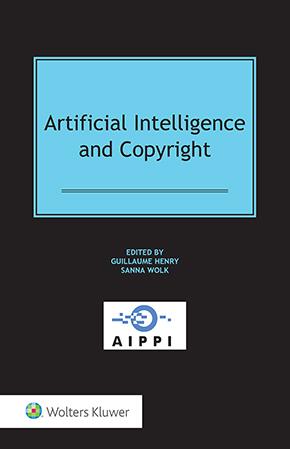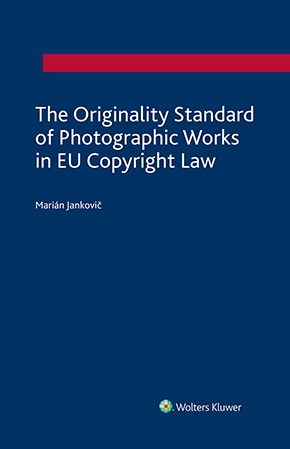A bittersweet symphony for the Belgian National Orchestra: CJEU applies EU copyright contract law to musicians appointed under statutory law - Part 1
August 19, 2025
Member States may not require performing musicians to transfer their neighbouring rights without their consent through an administrative order. On 6 March 2025, the Court of Justice of the European Union (CJEU) held that the Belgian Royal Decree that effected such a compulsory assignment for the statutorily appointed musicians of the Belgian National Orchestra runs counter to European Union (EU) copyright law. Part 1 of this blog post focuses on the background, facts and procedural elements of the case, as well as the personal and temporal scope of application of the relevant EU legal framework. Part 2 will treat the ensuing substantive consequences in terms of musician consent and remuneration.
Background and facts
The Belgian National Orchestra (BNO) is a leading symphonic orchestra that aims to bring classical music to a large audience, not only from their art nouveau home base BOZAR in Brussels, but also throughout Belgium and abroad. Among other things, the BNO is renowned for its status as accompanying orchestra in the prestigious Queen Elisabeth Competition.
During the past decade, however, the BNO’s many musical highs have been marked by a number of wrong notes, in the form of a persistent disagreement as to the appropriate monetary compensation of the BNO’s musicians for the exploitation of their performances. Between 2016 and 2019, there were negotiations between the orchestra management and musician trade unions. The BNO management first proposed an annual flat fee of 400 EUR for 25 recording sessions, while the trade union delegations advocated a higher amount of 4 percent of the musicians’ pay – ostensibly mirroring the arrangement applicable to their operatic ‘neighbours’ in the La Monnaie Symphony Orchestra. In 2020, matters came to a head when the BNO management sought to stream certain concert recordings online, seeking to offer qualitative classical music during the height of the COVID19 pandemic. A higher fee of 600 EUR could not persuade all musicians to consent to these exploitation activities. Ultimately, over 30 musicians filed proceedings before the court of first instance of Brussels. The court ordered the cessation of the BNO’s streaming activities in the summer of 2020. The court of appeal of Brussels partially upheld and specified this judgment on 7 May 2021. The BNO’s final appeal to the Belgian Court of Cassation was rejected on 29 April 2022.
Awaiting this final judgment, BNO management turned to the Belgian government for help, as a number of its musicians are appointed on a statutory basis instead of through a private contract. The Belgian government heeded this call through a dedicated royal decree (the ‘Decree’), adopted on Tuesday 1 June 2021 and published on Friday 4 June 2021. The Decree foresees a mandatory rights transfer from the musicians to the BNO in return for a gross annual flat fee of 600 EUR for full-time players (or 24 EUR per performance), with additional allowances for certain performance types, such as video game soundtracks. This arrangement was not expressly consented to by the affected players. The Decree entered into force that same day, while, under Belgian law, royal decrees usually only enter into force on the tenth day following their publication.
This sense of urgency is not surprising to those who have been following legislative evolutions at the EU level in the sphere of copyright contract law. Indeed, it coincides with the (then impending) implementation deadline of the Digital Single Market (DSM) Directive on Monday 7 June 2021. Article 18 DSM Directive requires Member States to ensure that composing and/or performing musicians who enter into transfer or licence agreements concerning their exclusive rights are entitled to receive ‘appropriate and proportionate’ remuneration, taking into account the freedom of contract and a fair balance of applicable rights and interests.
Procedure before the Belgian Council of State
The preamble of the Decree expressly noted the position of the Belgian government that the arrangement established by the Decree was ‘appropriate and proportionate’ given the characteristics of the sector, the profits generated and the remuneration regimes applicable to similar orchestras in Belgium. In the summer of 2021, three statutorily appointed musicians sought the annulment of the Decree, citing its infringement of the copyright contract law provisions of the DSM Directive and the protective legal framework applicable performers under the Belgian Code on Economic Law, as well as a violation of the right to property.
In its decision of 31 August 2023, the Belgian Council of State formulated several preliminary questions, not only to the CJEU, but also to the Belgian Constitutional Court. This blog post focuses on the CJEU case, in which Advocate-General Maciej Szpunar delivered his Opinion on 24 October 2024 (see here for an overview). The CJEU handed down its judgment on 6 March 2025. On 26 June 2025, the Belgian Constitutional Court sent ‘their’ question back to the Council of State, inquiring whether there was still need for a substantive analysis on their part in view of the CJEU’s decision. That is the latest evolution in this case that the author is aware of. Since the CJEU judgment, the Belgian government has not announced any corrective regulatory measures.
This case raises questions regarding the personal and temporal scope of application of EU copyright law.
Scope ratione personae
The personal scope of the legal framework is the first issue under (brief) review. The Belgian government defended the Royal Decree as a regulatory measure that applied only to employees under statutory law. As there was no private contract, they argued that the relevant EU copyright provisions did not apply. The musicians, conversely, advocated a broad scope of application, arguing that EU law applies uniformly to all performers, including those engaged under statutory law. AG Szpunar supported this view in his Opinion, interpreting the term ‘contract’ as including ‘any licensing exploitation or transfer of exclusive rights’ (§ 62), including in the context of jobs governed by statute such as those of the BNO musicians involved. A stricter interpretation would deprive the protective legal framework of its effectiveness, AG Szpunar acutely remarked (§ 64). The CJEU confirmed this analysis (Judgment, §§ 81-102).
Scope ratione temporis
The second issue at hand was the application of the DSM Directive in time. The Belgian government argued that the minimum benchmarks set by the DSM Directive did not apply, as the Royal Decree predated the implementation deadline of 7 June 2021 – if only by a couple of days. The CJEU rejected this argument.
Article 26 DSM Directive establishes that the copyright contract law provisions of the DSM Directive apply in respect of ‘all works and other subject matter that are protected by national law in the field of copyright’ on or after this date. This implies that the DSM Directive may apply to pre-existing music. However, the temporal application of the DSM Directive is expressly limited by the proviso that it does not affect ‘any acts concluded and rights acquired before 7 June 2021’.
It could be argued that ‘acts concluded’ and ‘rights acquired’ refer to all contracts entered into before 7 June 2021. This would mean that the minimum benchmarks set by the DSM Directive only apply to contracts postdating the DSM implementation deadline. This interpretation would undermine the objective of the DSM Directive to secure enhanced protection for artists, as indicated by AG Szpunar (Opinion, § 56 and 58).
An alternative interpretation is that the concept of ‘acts concluded’ refers to acts of exploitation, not the contracts themselves. This position is supported by the Dutch implementation of the DSM Directive, which provides that it does not apply to exploitation activities (in Dutch: ‘exploitatiehandelingen’) and rights granted (in Dutch: ‘verworven rechten’) predating its entry into force. This interpretation favours the interests of the musicians, as brings post-DSM acts of exploitation conducted on the basis of earlier contracts into the temporal scope of application of the DSM Directive.
The CJEU leans towards this outcome, but ultimately specifies that the DSM Directive applies to ‘performances’ carried out after 7 June 2021 (§ 80). It does not mention post-DSM acts of exploitation concerning pre-DSM performances and thus still, arguably, leaves margin for interpretation. In view of the continuous exploitation of performances over time, especially on streaming services, excluding such acts of exploitation would significantly affect the temporal scope of the minimum benchmarks set by the DSM Directive in practice. Including them would be in line with case law on the temporal application of the InfoSoc Directive, according to which its provisions apply ‘without prejudice to any acts concluded and rights acquired before 22 December 2002’. In the VG Wort case on private copying, the CJEU interpreted ‘acts concluded’ as referring to ‘acts of exploitation’. VG Wort is situated outside the contractual sphere, but as both the AG and the CJEU already refer to it in their analysis, it would make sense to take their argument to its logical conclusion.
In short, the CJEU justifiably decides against pre-DSM retroactivity and in favour of the application of the DSM Directive to the ongoing effects of measures adopted before the DSM implementation deadline. Part 2 of this blog post will treat the substantive consequences of this finding.
The author has conducted in-depth research on the rights of musicians and the exploitation thereof. The published version of the author’s doctoral thesis, which focuses on the legal framework surrounding contractual dynamics in the digitised music industry in the European Union and the United Kingdom, is available here.
You may also like












